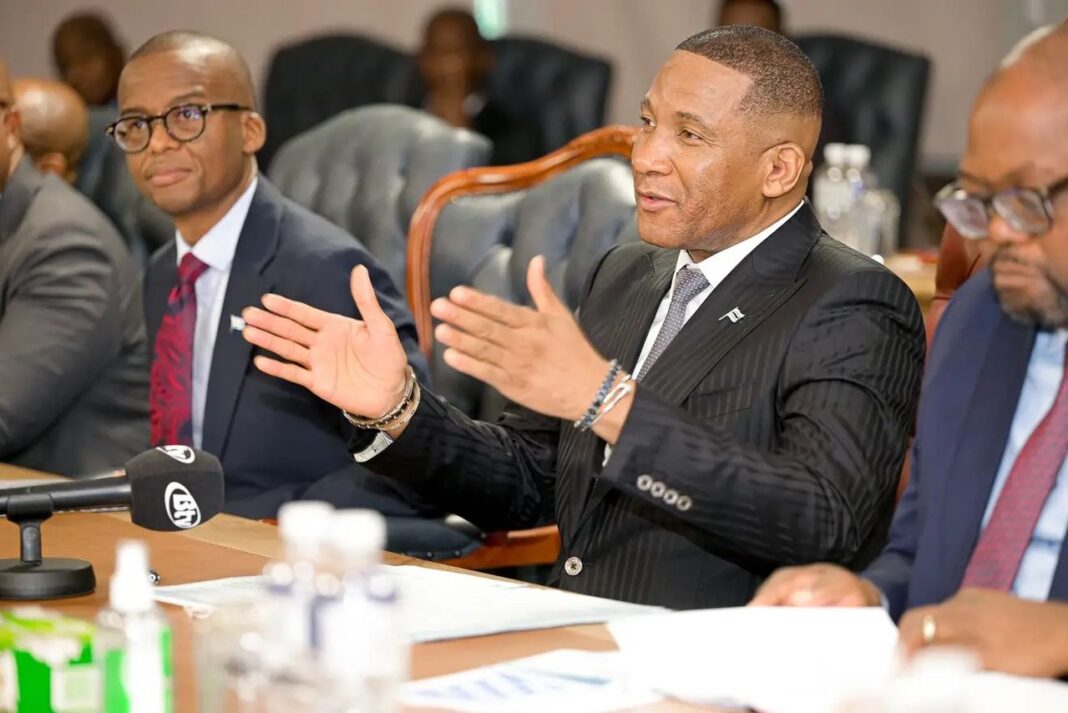The Botswana Economic Transformation Programme (BETP) represents the government’s boldest and most comprehensive structural reform since independence. It is the operational blueprint designed to bridge the gap between the nation’s current resource dependence and the Vision 2036 goal of a high-income, export-driven economy. This is not a collection of aspirational ideas; it is a meticulously planned investment pipeline valued at a colossal BWP 514 billion, identified and prioritised to convert Botswana’s inherent comparative advantages into globally competitive industries.
The scale of the ambition is breathtaking. From a pool of nearly 7,000 initial proposals submitted through a nationwide Call for Ideas, the BETP refined and selected 186 high-impact projects. These projects are the strategic levers intended to structurally overhaul the economy, with a direct mandate to create over 512,000 sustainable, decent jobs by the True North horizon. Crucially, 60 of these projects were already classified as “execution-ready” at the time of the report, signalling a focus on immediate delivery and momentum rather than protracted planning.
To ensure this enormous portfolio of projects transitions seamlessly from paper to physical reality, the BETP utilises a highly structured methodology adapted from global best practices: the Big Fast Results (BFR) Labs. These intensive, time-bound “LABS” bring together high-level public sector officials, critical regulatory bodies, and private sector stakeholders in focused sessions. The goal is singular: to stress-test project viability, remove regulatory and bureaucratic bottlenecks, and establish clear, executable timelines. This collaborative, hands-on approach ensures that governance challenges and infrastructure roadblocks are immediately unblocked, maintaining the agility and results-driven focus required for a program of this complexity.
The BETP pipeline spans nine catalytic sectors, strategically targeting areas ripe for diversification. Economically, the focus is intense on Financial Services and Digitalisation, leveraging the BIFSC to attract capital; Energy and Mining, pushing aggressively into renewables and minerals beneficiation; Manufacturing, promoting domestic value chains in areas like automotive components, packaging, and textiles; and Infrastructure & Logistics, which includes multi-billion Pula rail and road projects essential for regional trade. Equally important are the three social sectors—Education, Healthcare, and Social Protection—which serve as fundamental investments in human capital, ensuring that the economic gains are inclusive and felt by every Motswana. This integrated approach, blending economic transformation with social resilience, is central to the program’s philosophy.
However, the report is candid about the financing challenge. Independent analysis highlights a significant funding gap: the total estimated cost of the NDP12 Public Investment Programme stands at approximately P388 billion, far exceeding realistic public financing projections of roughly P120 billion. This reality underscores the vital need for private sector mobilisation. The BETP is specifically framed as a mechanism to attract and deploy credible, blended finance sources, compelling the government, investors, and citizens to become co-architects of national transformation, where every investment contributes directly to enterprise growth and long-term resilience.



